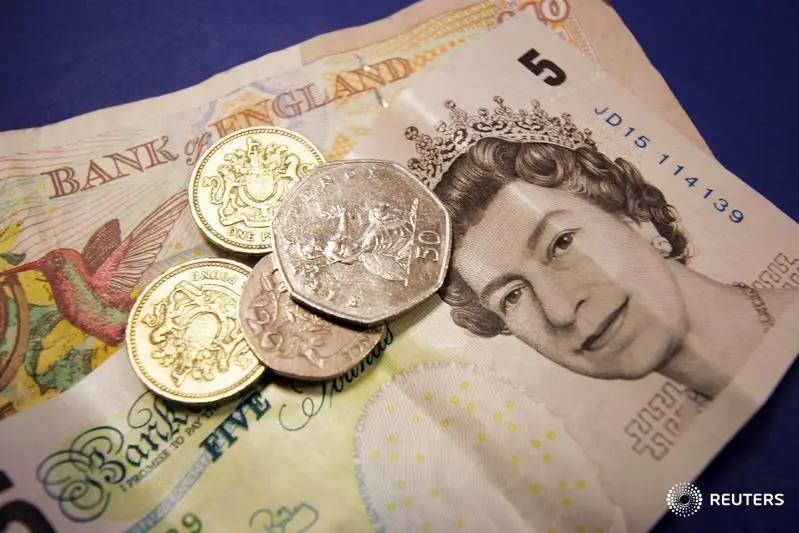PHOTO
LONDON - Sterling fell to a one month low against the dollar on Monday, coming under downward pressure from data showing Britain's economy had unexpectedly shrunk in April and from tensions with the European Union over post-Brexit trade with Northern Ireland.
Gross domestic product contracted by 0.3% after falling by 0.1% in March, the first back-to-back declines since March and April 2020, at the start of the coronavirus pandemic.
British economic growth is already expected to be among the weakest for rich countries in 2023, and there is uncertainty over how fast the Bank of England can raise interest rates to tame inflation without further hurting the economy.
"April's soft GDP figures may quell the appetite of some members to vote for a more aggressive 50bp hike", Investec chief economist Philip Shaw said in a note commenting on the GDP data.
Overall, the central bank is expected to raise interest rates for the fifth time since December on Thursday by another quarter percentage point in a bid to restrain inflation, which it forecast will exceed 10% in the final quarter of the year.
The pound fell as much as 0.8% to $1.2213, its lowest level since May 13, after having already suffered two straight weeks of losses as strong U.S. inflation data boosted the greenback and expectations of monetary tightening by the U.S. Federal Reserve.
Illustrating the pressure building up across global foreign exchange markets, the dollar index, which tracks the U.S. currency against six peers, was 0.2% higher at 104.58, its highest level in a month.
The British currency currently stands only 0.5% from its lowest level against the dollar since May 2020.
Adding to the pressure on the pound, the British government is due to present legislation to unilaterally scrap some of the rules that govern post-Brexit trade with Northern Ireland, a move which is likely to inflame a simmering argument with the European Union.
"It's hard to avoid the conclusion that we're heading towards a major clash with the EU that raises the risk of trade war," said Adam Cole, chief currency strategist at RBC Capital Markets, adding that risks were clearly on the downside for the pound.
British Prime Minister Boris Johnson said on Monday that triggering a trade war in response to the new legislation on Northern Ireland trade would be overreacting.
"All we are trying to do is have some bureaucratic simplifications between Great Britain and Northern Ireland", Johnson told LBC radio, challenging critics who say the legislation would break international law.
Against the euro, sterling was down 0.1% at 85.55 pence.
(Reporting by Julien Ponthus; Editing by Gareth Jones and Bradley Perrett)





















